Related Research Articles

Nikita Sergeyevich Khrushchev was the First Secretary of the Communist Party of the Soviet Union from 1953 to 1964, and Chairman of the Council of Ministers (premier) from 1958 to 1964. During his rule, Khrushchev stunned the communist world with his denunciation of his predecessor Joseph Stalin's crimes, and embarked on a policy of de-Stalinization with his key ally Anastas Mikoyan. He sponsored the early Soviet space program and the enactment of moderate reforms in domestic policy. After some false starts, and a narrowly avoided nuclear war over Cuba, he conducted successful negotiations with the United States to reduce Cold War tensions. In 1964, the Kremlin leadership stripped him of power, replacing him with Leonid Brezhnev as First Secretary and Alexei Kosygin as Premier.
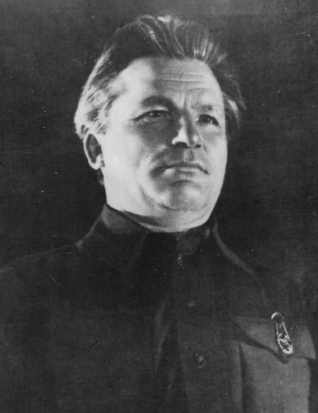
Sergei Mironovich Kirov was a Russian and Soviet politician and Bolshevik revolutionary.
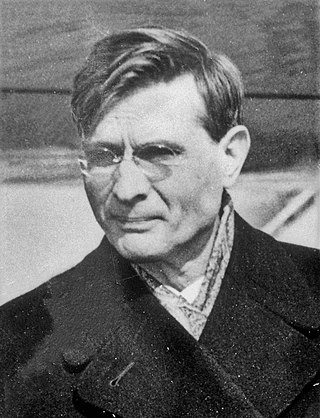
Mikhail Andreyevich Suslov was a Soviet statesman during the Cold War. He served as Second Secretary of the Communist Party of the Soviet Union from 1965, and as unofficial chief ideologue of the party until his death in 1982. Suslov was responsible for party democracy and power separation within the Communist Party. His hardline attitude resisting change made him one of the foremost orthodox communist Soviet leaders.

Nikolai Viktorovich Podgorny was a Soviet statesman who served as the Chairman of the Presidium of the Supreme Soviet, the head of state of the Soviet Union, from 1965 to 1977.

The Anti-Party Group, fully referenced in the Soviet political parlance as "the anti-Party group of Malenkov, Kaganovich, Molotov and Shepilov, who joined them" was a Stalinist group within the leadership of the Communist Party of the Soviet Union that unsuccessfully attempted to depose Nikita Khrushchev as First Secretary of the Party in June 1957. The group, given that epithet by Khrushchev, was led by former Premiers Georgy Malenkov and Vyacheslav Molotov and former First Deputy Premier Lazar Kaganovich. The group rejected both Khrushchev's liberalization of Soviet society and his denunciation of Joseph Stalin, and promoted the full restoration and preservation of Stalinism.

The 26th Congress of the Communist Party of the Soviet Union opened on February 23, 1981, with a five-hour address by the General Secretary of the Communist Party and the chairman (president) of the Presidium of the Supreme Soviet Leonid Brezhnev. This was the last Congress for Brezhnev, who died in 1982. Brezhnev proposed another round of arms control talks. At a time when an aging Soviet leadership faced a decline in economic growth, severe food problems at home, grave uncertainties about its future relationship with the United States, and unsettling events in Poland, the congress ended its week of speeches by unanimously confirming the existing leadership. The congress elected the 26th Central Committee.

The Chairman of the Council of Ministers of the Soviet Union was the head of the government of the Soviet Union during the existence of the Council of Ministers of the Soviet Union from 1946 to 1991.

Pyotr Nikolayevich Pospelov was a high-ranked functionary of the Communist Party of the Soviet Union, propagandist, academician of the USSR Academy of Sciences (1953), chief editor of Pravda newspaper, and director of the Institute of Marxism-Leninism. He was known as a staunch Stalinist who quickly became a supporter of Nikita Khrushchev.

Nikolai Semyonovich Patolichev was a Soviet statesman who served as Minister of Foreign Trade of the USSR from 1958 to 1985. Prior to that, he was the First Secretary of the Central Committee of the Communist Party of Byelorussia from 1950 to 1956.

The Presidium of the 22nd Congress of the Communist Party of the Soviet Union (CPSU) was in session from 1961 to 1966. CPSU First Secretary Nikita Khrushchev chaired the Presidium from 1961 to 1964; Leonid Brezhnev succeeded him that year and chaired it until 1966. In contrast to full members, candidate members of the Presidium could not vote during Presidium sessions. It was normal that a full member of the Presidium had previously served as a candidate member, but this was not always the case. During the term 23 people held seats in the Presidium: 14 full members and 9 candidate members. One candidate member was promoted to full membership in the Presidium during the term. Not a single Presidium member died during this period while retaining office.
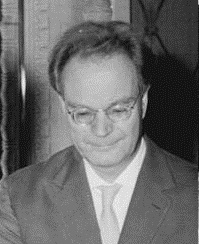
Mikhail Georgievich Pervukhin was a Soviet official during the Stalin Era and Khrushchev Era. He served as a First Deputy Chairman of the Council of Ministers, literally First Vice-Premier of the Soviet Union, from 1955 to 1957.
Nuritdin Akramovich Mukhitdinov was a Soviet politician. Between 1957 and 1961 he was a member of the Presidium of the Central Committee of the Communist Party of the Soviet Union, significantly contributing to its relations with the Soviet republics and foreign countries in Asia. He was also the Soviet ambassador to Syria between 1968 and 1977.

Georgy Maximilianovich Malenkov was a Soviet politician who briefly succeeded Joseph Stalin as the leader of the Soviet Union. However, at the insistence of the rest of the Presidium, he relinquished control over the party apparatus in exchange for remaining Premier and first among equals within the Soviet collective leadership. He then became embroiled in a power struggle with Nikita Khrushchev that culminated in his removal from the premiership in 1955 as well as the Presidium in 1957.
"On the Cult of Personality and Its Consequences", popularly known as the "Secret Speech", was a report by Soviet leader Nikita Khrushchev, First Secretary of the Communist Party of the Soviet Union, made to the 20th Congress of the Communist Party of the Soviet Union on 25 February 1956. Khrushchev's speech was sharply critical of the rule of the deceased General Secretary and Premier Joseph Stalin, particularly with respect to the purges which had especially marked the last years of the 1930s. Khrushchev charged Stalin with having fostered a leadership cult of personality despite ostensibly maintaining support for the ideals of communism. The speech was leaked to the West by the Israeli intelligence agency Shin Bet, which received it from the Polish-Jewish journalist Wiktor Grajewski.

The Council of Ministers of the Union of Soviet Socialist Republics, was the de jure government of the Union of Soviet Socialist Republics (USSR), comprising the main executive and administrative agency of the USSR from 1946 until 1991.
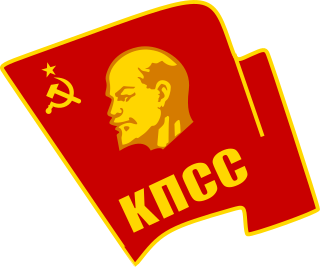
The Central Committee of the Communist Party of the Soviet Union was the executive leadership of the Communist Party of the Soviet Union, acting between sessions of Congress. According to party statutes, the committee directed all party and governmental activities. Its members were elected by the Party Congress.
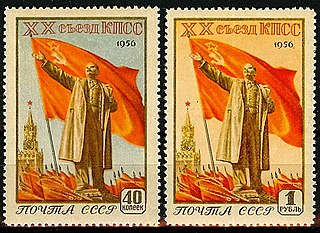
The 20th Congress of the Communist Party of the Soviet Union was held during the period 14–25 February 1956. It is known especially for First Secretary Nikita Khrushchev's "Secret Speech", which denounced the personality cult and dictatorship of Joseph Stalin.
The Nineteenth Congress of the Communist Party of the Soviet Union was held from 5 to 14 October 1952. It was the first party congress since before World War II and the last under Joseph Stalin's leadership. It was attended by many dignitaries from foreign Communist parties, including Liu Shaoqi from China. At this Congress, Stalin gave the last public speech of his life. The 19th Central Committee was elected at the congress.
The following lists events that happened during 1956 in the Union of Soviet Socialist Republics.
The Defence Council or the Council of Defense of the USSR was a high military advisory body which aided and assisted the Government of the Soviet Union and the Central Committee of the Communist Party of the Soviet Union in the implementation of military policy by the Soviet Armed Forces. It operated between 1955-1991. At the end of its existence, it was known as the Defense Council under the President of the Soviet Union.
References
- ↑ Charlton, Michael (1992). "Chapter 1: "Khrushchev's Secret Speech"". Footsteps from the Finland Station: Five Landmarks in the Collapse of Communism. Transaction Publishers. pp. 7–80. ISBN 9781412823692.
- ↑ Taubman, William; Khrushchev, Sergei; Gleason, Abbott (2000). Nikita Khrushchev . Yale University Press. pp. 100. ISBN 978-0300128093.
pospelov commission.